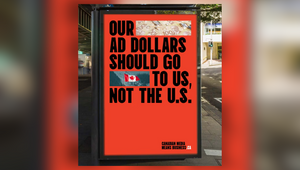
The Next Trend in Social and Influencer is Growth, Growth, Growth

Nothing is more telling about the state of marketing right now than Unilever’s new CEO, Fernando Fernandez, announcing that the FMCG giant will increase social media investment from 30% to 50% of its total marketing spend, alongside a pledge to work with 20 times more influencers.
But aren’t consumers sick of being sold to online? Quite the opposite, and Sprout Social, provider of cloud-based social media management software, has the stats to prove it with the release of its latest ‘The Influence Survey’ findings, published this week.
“The research is exploring the changing landscape of influence. And influence, as we define it, is more powerful than ever, but it's also fairly fragmented,” said Scott Morris, CMO of Sprout Social.
“Consumers are not shying away from being sold to on social media across generations but it must be done in a way that aligns with the values of the creator, the values of the brand, and ultimately the values of the audience,” Scott continued.
As far as reports of social media fatigue go, the survey found the opposite to be true, particularly among gen z. “They're actually looking for new sources where they can find new creators and inspiration,” Scott said of the cohort. The data shows that 67% of UK consumers are happy with their current platform use and habits while 17% plan to join a new platform in 2025. This number increases to one in four for gen z consumers who are interested in joining a new platform this year.
Even more interesting is the statistic that 66% of people would join a brand new platform just to access one singular creator while 32% (a third) would pay for exclusive content and subscribe to the creator's premium offerings. In Scott’s view, this “really shows the value that consumers are placing on influencers.”
And the influence is working as 37% of consumers actually make monthly purchases on social shopping. In fact, one out of four gen z consumers said that social is the first place they go to shop. Scott noted: “They don't go to other online sources or retail, the very first place they go to make purchases actually is social. A big generational shift is happening.”
Why does this matter for brands and marketers? Gen z’s predicted spending power is expected to reach 12 trillion US dollars by 2030 meaning there’s a lot to gain by meeting this new consumer where they are and getting products in front of them in a manner they want to interact with.
When it comes to influencers, authenticity prevails over everything else. “People really don't care about things like follower count. So 44% do not believe that it matters at all. It really points to how micro and nano influencers are really gaining significant trust among consumers. Niche communities and authentic engagement is more important than ever, and the data really shows us that brands need to focus on building authentic relationships with influences on social, especially with gen z,” he added.
Speaking at the launch of the survey results was Chris Twining, head of integrated media at the iconic luxury brand, Stone Island, who has first hand experience of building and nurturing meaningful influencer relationships for the brand. His experience spans working with brands like Burberry and the LVMH group, and he said that when he first started out influencing was very linear. “It was very much about working with very select types of talent in their verticals, appealing to a very specific type of audience, aka, you're contextualising your brand the right way,” Chris said.
Today, that kind of approach is limiting and ultimately inauthentic. No one is just one thing. “We're at a point where there is no linear approach to anything in the influence of space. I think you can really tap into non-endemic talent, and it can still appeal to a broad, mass audience,” he adds.
Stone Island is in a unique and privileged position whereby its audience is into collecting, not simply consuming, the brand’s products. This has allowed it to foster relationships with cultural powerhouses like Frieze to further broaden and strengthen the brand’s status. “We can go into the world of art, we can go into the world of engineering,” said Chris. “For the last two years, Stone Island's been a strategic partner of the Frieze art fairs. What we've been doing there is working with their Frieze Focus vertical, which is basically platforming emerging galleries and artists. It's very organic, obviously; though we're a paying partner, it comes as a 360 piece, but really at the heart of it is working with emerging artists and galleries to help them platform themselves.”
Chris notes the organic relationships Stone Island is building with influencers: “We’re with these people for multiple seasons, not just supporting them and then walking away from that. I think it’s a really nice example of working with influencers in their space and in their vertical to grow their profile, but also doing it over a longer term period, not just a flash in the pan. Did it drive a CTR? Did it drive engagement rate? Great. Tick, next. We're not doing that. And I think many brands now are really starting to wise up to this. You can't just turn it on and then turn it off. You need to build, otherwise the audience is going to know straight away that it doesn't feel right.”
Based on the survey results, it’s clear that social-first marketing – especially via influencers – is here not to just stay but grow exponentially. When done well, with intent and authenticity, it’s a way for brands to reach consumers and build vital relationships that go beyond single transactions.















